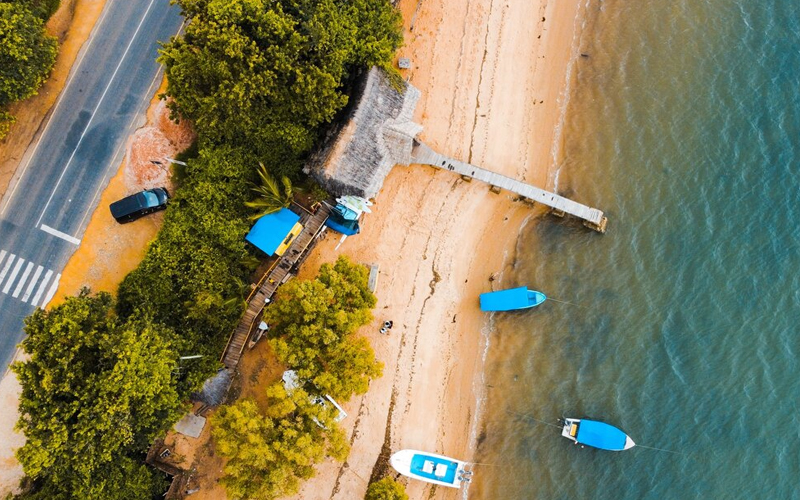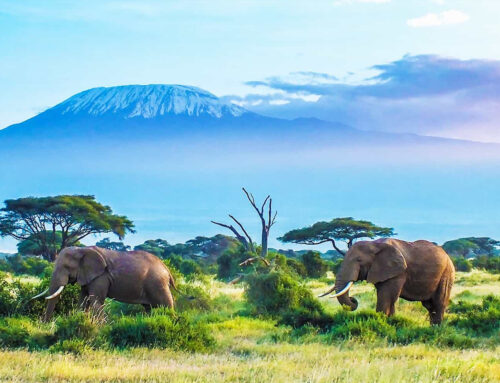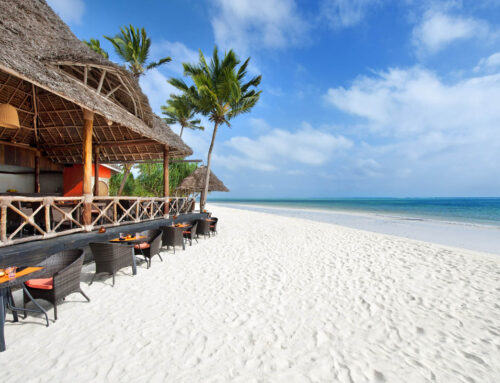Traveling to Tanzania offers an exciting mix of adventure, wildlife, and culture. However, like any destination, it’s important to be aware of health and safety considerations to ensure a smooth and enjoyable trip. This guide covers essential information on health and safety in Tanzania, from vaccinations to staying safe in cities and wildlife areas.
Know About Tanzanian Health and Safety
Vaccinations and Health Precautions
- Recommended Vaccinations
Before traveling to Tanzania, it’s crucial to get the appropriate vaccinations. The most commonly recommended vaccines include:
- Yellow Fever: Required if coming from a country with a risk of yellow fever transmission.
- Hepatitis A and B: These vaccines are recommended for most travelers.
- Typhoid: Particularly important for those staying with friends or relatives or traveling to smaller cities and rural areas.
- Rabies: Consider this vaccine if you plan to spend a lot of time outdoors or in remote areas.
- Malaria Prevention: Tanzania is a malaria-prone area, so take preventive measures such as malaria prophylaxis, using insect repellent, and sleeping under mosquito nets.
- Health Tips
- Stay Hydrated: The tropical climate can be dehydrating, so drink plenty of bottled or purified water.
- Food Safety: Stick to well-cooked food and avoid street food unless it’s from a trusted source.
- Sun Protection: The sun in Tanzania can be intense, so wear sunscreen, a hat, and sunglasses.
Medical Facilities and Emergency Services
- Availability of Medical Care
Major cities like Dar es Salaam and Arusha have good hospitals and clinics. However, medical facilities in rural areas may be limited. It’s advisable to bring any necessary medications with you and ensure your health insurance covers medical evacuation.
- Emergency Services
- Ambulance Services: Available in major cities but may be limited in rural areas.
- Medical Evacuation: Consider travel insurance that covers medical evacuation in case of serious injury or illness.
Travel Insurance
- Why It’s Essential
Travel insurance is a must when visiting Tanzania. It should cover medical expenses, emergency evacuations, trip cancellations, and lost or stolen belongings.
- What to Look For
- Comprehensive Coverage: Ensure your policy covers medical emergencies, including hospital stays and evacuations.
- Adventure Activities: If you plan on trekking or going on a safari, make sure your insurance covers these activities.
- Trip Cancellation: Look for policies that protect against unforeseen cancellations or interruptions.
Safety in Tanzanian Cities
- General City Safety Tips
While Tanzanian cities like Dar es Salaam and Arusha are generally safe, it’s important to stay vigilant, especially in crowded areas. Petty crimes such as pickpocketing can occur, so take precautions.
- Precautionary Measures
- Avoid Walking Alone at Night: Stick to well-lit, populated areas if you’re out after dark.
- Be Cautious with Your Valuables: Keep your belongings secure and avoid displaying expensive items in public.
- Use Trusted Transportation: Opt for reputable taxi services or ride-sharing apps instead of hailing random cabs.
Wildlife Safety During Safaris
- Safety Guidelines for Safaris
Tanzania is home to some of the world’s most incredible wildlife, but it’s important to respect these animals and follow safety guidelines to avoid dangerous encounters.
- Important Safari Tips
- Stay in the Vehicle: Never leave your vehicle during a game drive unless instructed by your guide.
- Listen to Your Guide: Follow the advice and instructions of your safari guide at all times.
- Keep Your Distance: Do not approach wildlife too closely, even if they appear calm.
Road Safety in Tanzania
- Driving Conditions
Roads in Tanzania can vary greatly in quality, with some being well-paved while others are dirt tracks. Be cautious if you plan on driving, especially in rural areas.
- Road Safety Tips
- Drive Defensively: Be aware of other drivers, pedestrians, and animals on the road.
- Avoid Night Driving: Roads can be poorly lit, and animals may wander onto them after dark.
- Rent a 4×4: If you plan on traveling to remote areas or national parks, a 4×4 vehicle is recommended.
Water Safety
- Safe Drinking Water
It’s best to avoid tap water in Tanzania. Stick to bottled or purified water for drinking and brushing your teeth.
- Swimming Safety
- Ocean Currents: Be cautious when swimming in the ocean, as some areas have strong currents.
- Swimming Pools: Most hotels have clean, safe swimming pools, but always supervise children and follow pool rules.
Local Laws and Customs
- Understanding Local Customs
Tanzania is a diverse country with a mix of cultural and religious practices. Respecting local customs is essential for a smooth and respectful visit.
- What to Know
- Dress Modestly: Especially in Zanzibar and other predominantly Muslim areas, it’s important to dress modestly.
- Photography: Always ask for permission before taking photos of people, especially in rural areas.
Staying Informed and Prepared
- Monitoring Health Alerts
Stay informed about any health alerts or travel advisories issued by your home country or international health organizations. This can help you avoid potential risks.
- Preparing for Your Trip
- Pack a First Aid Kit: Include basic medical supplies such as bandages, antiseptics, and over-the-counter medications.
- Register with Your Embassy: If you’re staying for an extended period, consider registering with your embassy for updates on safety and health.
Ensuring your health and safety while traveling in Tanzania is key to enjoying your trip to the fullest. By taking the necessary precautions—such as getting the right vaccinations, purchasing comprehensive travel insurance, and following safety guidelines—you can explore Tanzania with confidence and peace of mind.
FAQs
1. Do I need a yellow fever vaccination to enter Tanzania?
Yes, a yellow fever vaccination is required if you’re coming from a country where yellow fever is prevalent.
2. Is it safe to drink tap water in Tanzania?
No, it’s advisable to drink bottled or purified water to avoid waterborne illnesses.
3. What should I do in case of a medical emergency in Tanzania?
Seek help at the nearest hospital or clinic in major cities, and ensure you have travel insurance that covers medical evacuation if necessary.
4. Are there any specific safety concerns for solo travelers in Tanzania?
Solo travelers should take general precautions, such as avoiding walking alone at night, using trusted transportation, and staying in reputable accommodations.
5. What wildlife safety tips should I follow during a safari?
Always stay in your vehicle, keep a safe distance from animals, and follow the instructions of your safari guide.
For comprehensive planning, explore the following guides on our site:
- Safari FAQs
- Kilimanjaro Climbing
- Ruaha National Park
- Selous Game Reserve
- Serengeti National Park
- Tanzania Safari Packages
- Zanzibar Beach Tours
Visit our page for expert advice and detailed tips to make the most of your Tanzanian adventure.






Leave A Comment